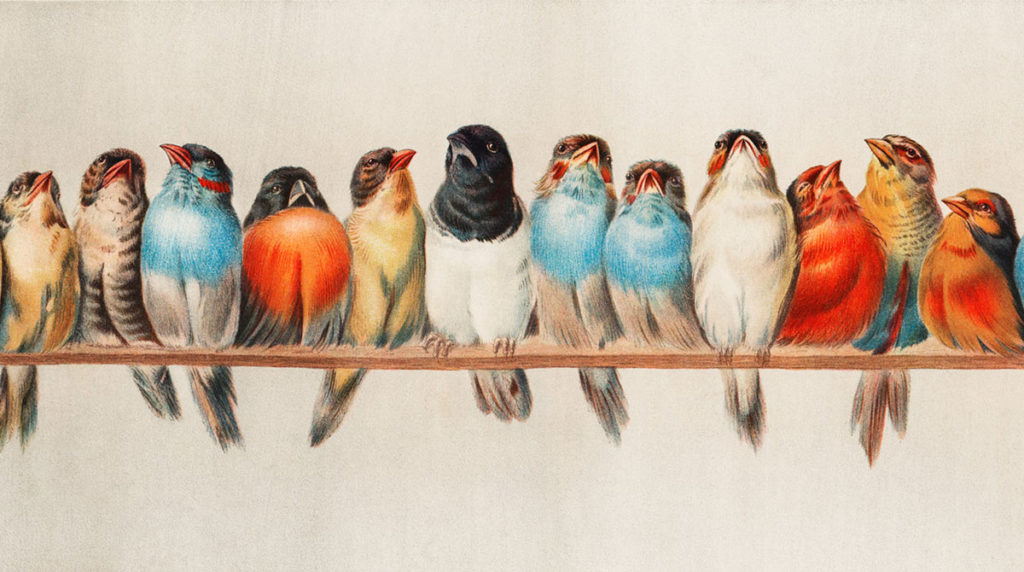
The house agent who came to see the house, which I was putting on the market, wore three-inch stiletto heels. Thank goodness it wasn’t a rainy day because she would have sunk deep into the turf of the yard, much of it mossy and becoming soggy and then soupy when wet. Even on this relatively dry day, I worried. How could anyone walk in those shoes, period, much less across uneven ground? She did not hesitate but in her heels, hot pink slacks, and jacket went tripping delicately down the stone path and into the grass, her cell phone aloft. She paused, snapped a picture, swiveled, leaned back, snapped another. Her long wavy tresses were dyed an unabashed, luminescent blond, and her makeup—her makeup what? Not heavy, but total, like the luster of sun reflected off a smooth surface on a cloudless day. She wasn’t my ideal, at all, but instead of shyness or fear or repugnance, I felt drawn to her.
She murmured as she went, though whether to herself or me I wasn’t sure. In the 15 minutes I’d known her, I’d already learned she doesn’t raise her voice in either disapproval or zeal. Does she talk, does she speak, does she enthuse? Does she command, I asked myself, as I followed her about the yard, eager to point out features she might wonder about and ready to catch her should she stumble. Even with her heels she was several inches shorter than I. And though I’m thin, she was twice as thin. I could have scooped her up in my arms, she was that slight. Diminutive, except for those heels, which seemed to confer a stature that my rubber clogs would never provide, though I towered over her.
She’d arrived in a taxi that pulled up outside the gate, and the taxi waited when she came in. Her easy manner with the driver, and the fact that neither was wearing a mask, made me wonder if they weren’t friends. Maybe he was her boyfriend, I thought, also reflecting that he didn’t seem her type. Large and loose he was, a bit frayed at the edges compared to her contained, glimmering self. She smiled a rueful, laughing smile. She was 40 minutes late, and her murmurings that I leaned toward her to hear were hardly necessary—I was already ready to forgive everything.
Her last words to me 45 minutes later, as she settled back into the taxi, were about her commission—normally four percent, she confided, but only three for me. “Goodbye, goodbye!” I called out, waving to my good friend. I knew her age, just a few years shy of mine, her child’s name, her grandfather’s height, her love of travel, her three trips to the Amazon and her fearlessness there. Also her quick eye for an antique, her discretion in seeing past the cheap furniture among the good pieces, her ability to ignore dust. Her fondness for Julio Iglesias. Her appreciation of her ex-husband’s qualities as a father, her gentle censure of his seductive ways—seductive of others, she’d revealed. I knew she saw the stray cobwebs in the corners and forgave them. Naturally she would, as I did the thick, black globby webs of mascara that I saw past, into her knowing, teasing eyes.
I couldn’t say whether she was pretty or not, but I felt fairly certain that it didn’t matter. She didn’t need looks because she had her ever so much more encompassing manner, which enveloped her and wafted along like perfume when she turned a corner into a room, raised her phone for a picture, and unhesitatingly first mounted and then, with equal confidence, descended the steep stairs.
As she’d descended without the help of a banister, I’d heard no click-click from her heels. I’d heard instead birds outside the window fluttering through the branches, flitting from one twig to the next and communing with one another in snatches of song. A. A. Milne’s poem “Corner-of-the-Street” floated into my mind.
Down by the corner of the street,
Where the three roads meet,
And the feet
Of the people as they pass go ‘Tweet-tweet-tweet—’
Good ol’ Milne, giving me the rhythm and the rhyme to fit this woman’s movements. Wonderful woman, filling my house with hope. In a moment, I felt sure, would come another gentle, light offering from her life to mine, a hand outstretched with a crumb. Not bread, I knew, but sweet cake. Beguiling. It was fall, but my home was full of birds, full of spring, full of light. She could have sold me my own house had she wanted. I knew what was in it for her: three percent. I didn’t know if I’d see through her during our business association, or if, instead, the magic would last, but my house when I went back in was still full of enchanting light.

